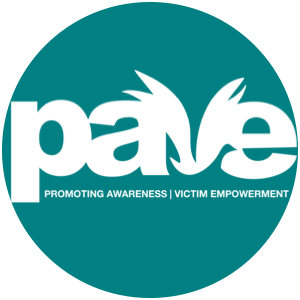PTSD Awareness Day
Today, June 27th is Post-Traumatic Stress Disorder Awareness Day. Additionally, June marks the observation of National Post-Traumatic Stress Disorder Awareness Month (PTSD)- a campaign designed to raise awareness of symptoms and treatment options for those living with PTSD. While PTSD is typically associated with combat veterans, this disorder can affect any individual who has experienced or witnessed a traumatic event, including survivors of sexual assault and intimate partner violence.
Researchers believe that while experiencing an act of sexual violence, the brain copes with a sudden surge of negative stimuli by shutting down. While the impairment of the prefrontal cortex serves as the body’s natural response to overwhelming levels of stress and fear, cognitive suppression during the event may impact a survivor’s ability to cope with the aftermath. A person who has been sexually assaulted will generally experience emotions such as anger, guilt, anxiety, and sadness after the crime. Healing is not linear, these emotions may last for the first few weeks after trauma, or they may last for a few years. However long your journey to healing is, please know you are not alone.
A PTSD diagnosis is typically given to individuals whose symptoms last longer than a month. Intense psychological distress can occur when survivors re-experience the assault in an attempt to process the trauma, which can be debilitating enough to impair their quality of life. Intrusive thoughts, hyper-sensitivity to stimulus, and flashbacks are common. The survivor’s feelings may worsen due to the stigma associated with sexual assault. Disclosure about the event to a loved one or to law enforcement may give rise to feelings of shame or embarrassment that can be exacerbated by the response of the listener.
The prevalence of PTSD in sexual assault survivors is considerably higher than the national average for the disorder. Approximately 94% of women have experienced trauma-induced symptoms after an assault, and nearly 50% of diagnosed PTSD cases in the United States are due to instances of physical or sexual violence. These statistics are alarming, and suggest that the current therapies for abused patients are highly inadequate and in need of reform. Holitstic, individualized treatments that take in account the biological, psychological, and sociological impacts of sexual assault are necessary to properly address the unique needs of survivors. Fortunately, there are several treatments that have been successful in treating PTSD patients. Below are a few options suggested by professionals and survivors.
Prolonged Exposure Therapy: Helps patients confront things that remind them of the traumatic event. Therapists ask survivors to compile a list of what they’ve been avoiding, and teach them techniques on how to face them, one by one. Another exercise is to recount the traumatic experience to the therapist, listen to a recording of the conversation, and process it. This therapy is recommended for people who have been using avoidance coping to deal with the assault.
Eye Movement Desensitization and Reprocessing: The clinician asks the patient to discuss memories related to the assault while watching or listening to something they’re doing, such as tracking hand movement across the face. Researchers believe that combining external stimuli with memory processing may help with survivor empowerment and strengthen emotional health. This therapy is suggested for people who haven’t responded to traditional forms of communication counseling.
Stress Inoculation Training: Focuses on teaching patients how to deal with the stress stemming from the event. Techniques such as massage therapy and breathing exercises can be utilized to relax the mind and body, relieving the individual of negative thoughts regarding the assault. This therapy is good for people who don’t wish to discuss the assault in detail, but still want to cope with the resulting emotions they face.
If you or a loved one is experiencing symptoms of PTSD after surviving an assault, services are available to help with the healing and recovery process. All survivors deserve love, peace, and joy. Healing isn’t linear, and it may appear impossible at times. However, healing is possible, and PAVE is here to support you!
Information from WebMD, Vital Record, McGill Journal of Medicine, Very Well Mind
About the Author
Hello! I’m Rory Corcoran, an outreach intern at PAVE. I’m pursuing a degree in Human Development at Binghamton University. As a survivor of intimate partner violence, I’m passionate about voice empowerment, promoting advocacy services, and making the reporting process more accommodating for those who’ve experienced trauma.

